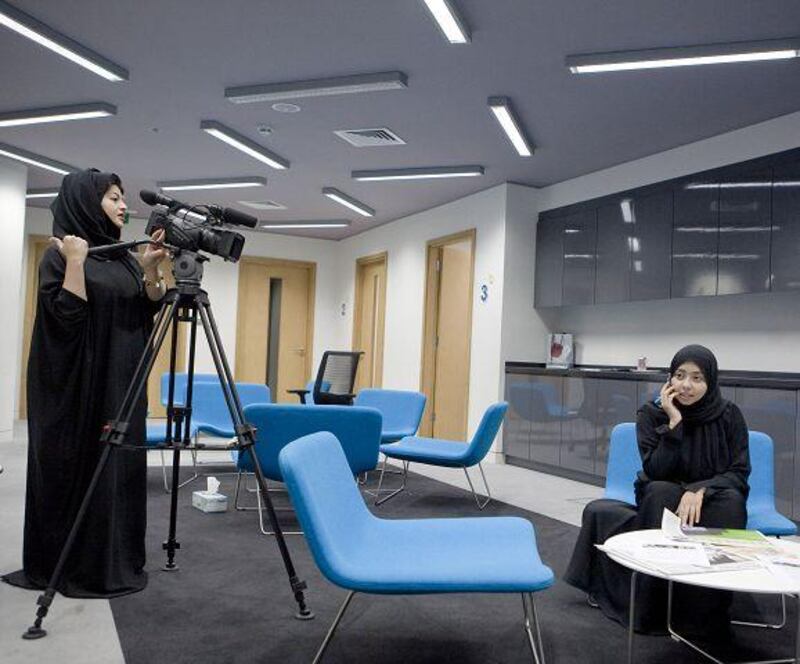This week the winners of the second Anasy Documentary Awards, under the patronage of Sheikh Nahyan Bin Mubarak Al Nahyan, Minister of Higher Education and Scientific Research, will be announced in Abu Dhabi. Filmmakers from 40 countries entered the contest. Of the 220 films submitted, 20 have made it to the shortlist where they will be competing for 12 awards, the largest of which is worth Dh500,000.
Six Emirati students are in the running in the one-minute documentary section. Their films were the result of a workshop arranged by Anasy in March, in association with twofour54 and Unicef, the children's fund. Two groups of eight students took part in the course, completing a week-long syllabus that included learning how to shoot and edit footage, plan interviews and create storyboards. "We just don't want students and young filmmakers to be scared to submit their films in such international competition," said Dhekra Ouali, the director of the awards. "Probably the balance will not be on their side... That's why we want to give them some knowledge, so they can submit in an appropriate way."
Waleed Mohammed Eshghi, a 20-year-old entrepreneurship student at Al Ain University, was impressed by the hands-on nature of the course. "I didn't think we were going to do any practical things," he said. "But actually this experience was all about practical things, and using the camera and actually going to the mall and taking pictures, asking people for permission." One of the first exercises Eshghi had to perform was to make a short documentary about happiness.
"It was weird because we didn't know what to do," he said. "We found some people and asked if we could shoot you while you're doing whatever you're doing." He found a family in the playground of Marina Mall. "The smile on their face: that was the subject." Eshghi had a clear idea of what he wanted his competition entry to be about. "My subject is about children under 18 from the suburbs who don't actually have any playground or any football fields so they just play in the dust in neighbourhoods.
"My subject is the government are not providing these facilities for young children," he said. He is now preparing himself to instruct a professional film crew for the shoot. "I still don't believe that I'm going to direct something," he said. The course leader was Helen Scott, a British documentary maker and the former director of factual programming at Yorkshire Television. She took the students through a structured series of shooting and editing exercises, but says the path the course took was shaped by their responses. "A lot of it has grown organically out of their work and what we're seeing on the screen as they do a piece of work and then watch it as a class," she explained.
"It's mostly what they're saying, that they're picking up how many jump cuts there are, say." That kind of feedback would come in handy when they shot their one-minute films. "You might think it's short and therefore it's easy," said Scott. "It's not. In one minute absolutely every shot has got to count. The images have to be powerful. You have to be able to tell a story in a very short space of time, and arguably it would be much easier for them if they were doing five-minute movies rather than one-minute. So it's a real skill that they're learning here."
Huda Abbas, a 21-year-old video production student at Abu Dhabi's Higher College of Technology, had already made two short films as part of her course. Nonetheless she was impressed at the training she received at twofour54. "Helen did a really great job teaching us what to do and what not to do," she said. The most important lesson, she felt, was about careful preparation. "You need to manage yourself and manage your time," she said, "Sometimes what I like to do is break the rules and start shooting before doing anything else."
Scott was talking her out of it. "She keeps on telling us that 90 per cent of the work starts before shooting," said Abbas. "The documentary is an open book where you can find all the knowledge, when you can know others, where you can know new worlds," Dhekra Ouali said. " You can learn something every time when you are watching a documentary." The same appears to go for making them, too. You can see films from the Anasy Documentary awards this week and in the first two weeks of May at Ductac.
Visit ductac.org for details.





